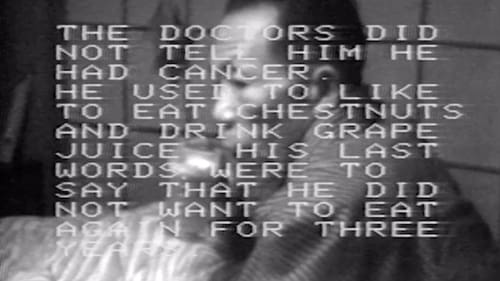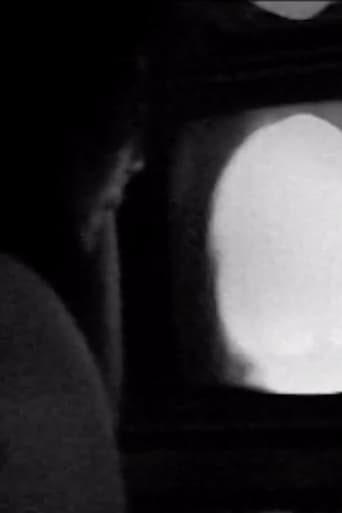My Father
5.5
Documentary
Rated:
1975
0h16m
On:
Country: United States of America
"Father, why did you die?" With this deeply intimate statement of grief, Kubota mourns the death of her father. Video and television are central to her ritual of mourning, and allow her father to assume a presence after death. Kubota and her father, who was dying of cancer in Japan, are seen watching television together on New Year's Eve. The suffering of father and daughter is rendered even more poignant when contrasted with the everyday banality of the pop music and New Year's celebrations on TV. After his death, Kubota weeps alone in front of a video monitor. Awash with tears and personal pain, My Father is a cathartic exorcism of grief, with video serving as witness and memory. "Father, why did you die?" With this deeply intimate statement of grief, Kubota mourns the death of her father. Video and television are central to her ritual of mourning, and allow her father to assume a presence after death. Kubota and her father, who was dying of cancer in Japan, are seen watching television together on New Year's Eve. The suffering of father and daughter is rendered even more poignant when contrasted with the everyday banality of the pop music and New Year's celebrations on TV. After his death, Kubota weeps alone in front of a video monitor. Awash with tears and personal pain, My Father is a cathartic exorcism of grief, with video serving as witness and memory. "Father, why did you die?" With this deeply intimate statement of grief, Kubota mourns the death of her father. Video and television are central to her ritual of mourning, and allow her father to assume a presence after death. Kubota and her father, who was dying of cancer in Japan, are seen watching television together on New Year's Eve. The suffering of father and daughter is rendered even more poignant when contrasted with the everyday banality of the pop music and New Year's celebrations on TV. After his death, Kubota weeps alone in front of a video monitor. Awash with tears and personal pain, My Father is a cathartic exorcism of grief, with video serving as witness and memory. "Father, why did you die?" With this deeply intimate statement of grief, Kubota mourns the death of her father. Video and television are central to her ritual of mourning, and allow her father to assume a presence after death. Kubota and her father, who was dying of cancer in Japan, are seen watching television together on New Year's Eve. The suffering of father and daughter is rendered even more poignant when contrasted with the everyday banality of the pop music and New Year's celebrations on TV. After his death, Kubota weeps alone in front of a video monitor. Awash with tears and personal pain, My Father is a cathartic exorcism of grief, with video serving as witness and memory.



 AD
AD

